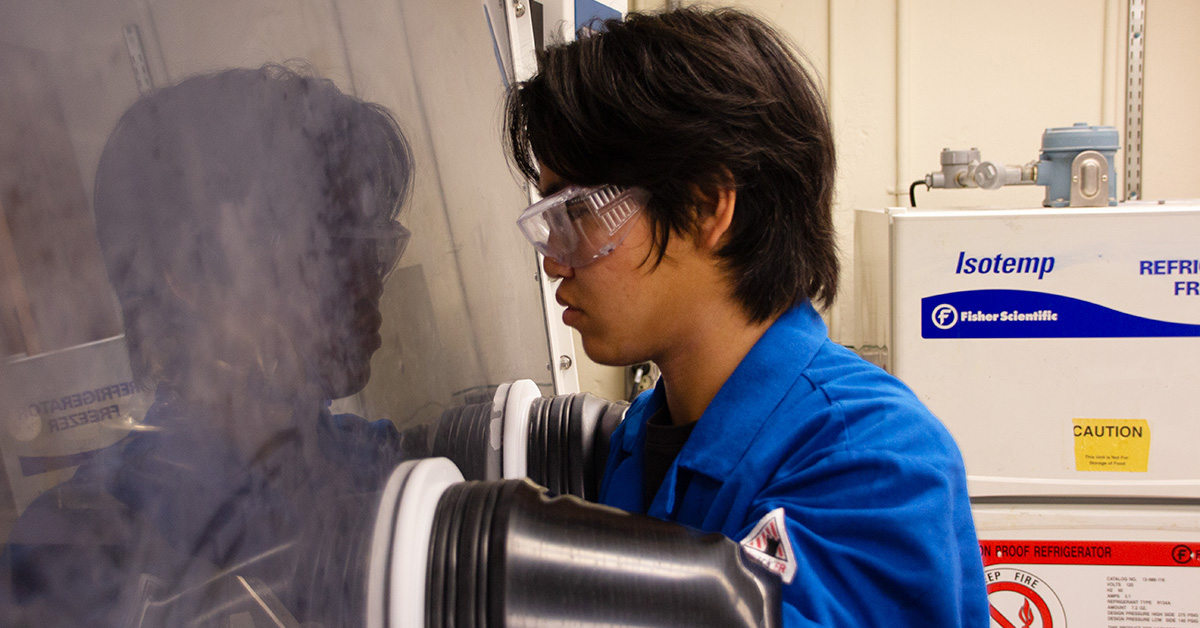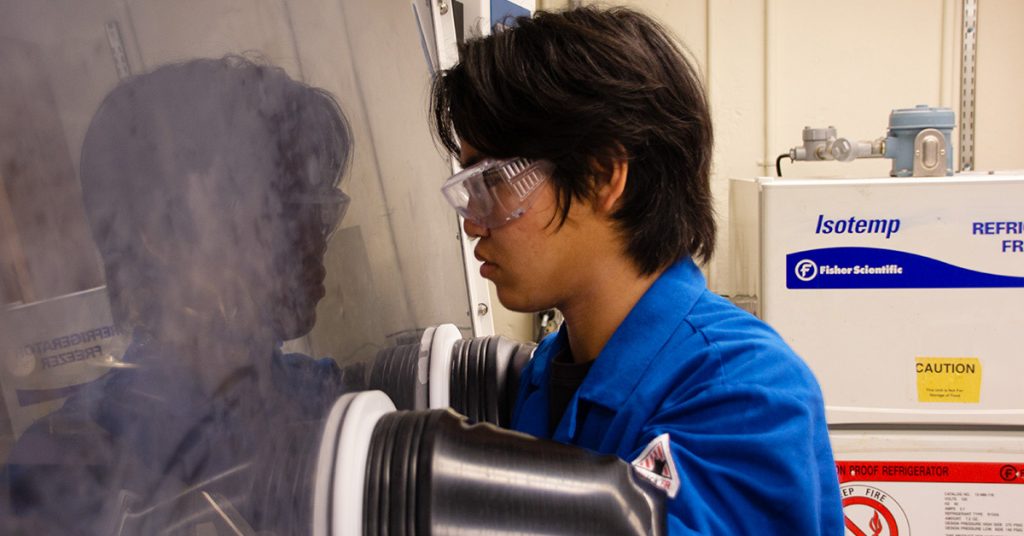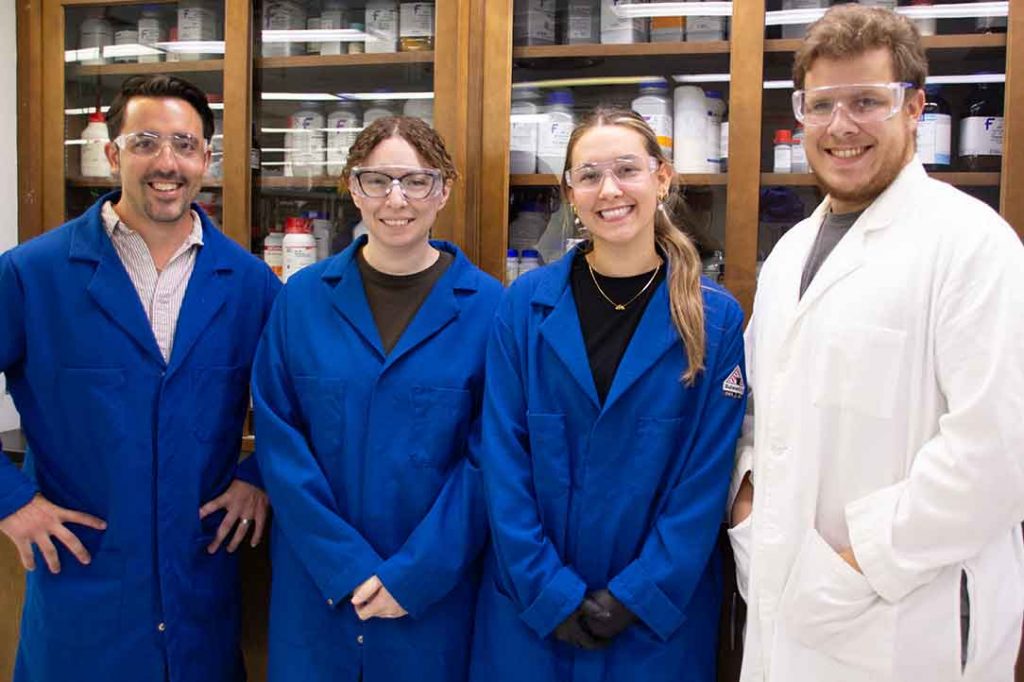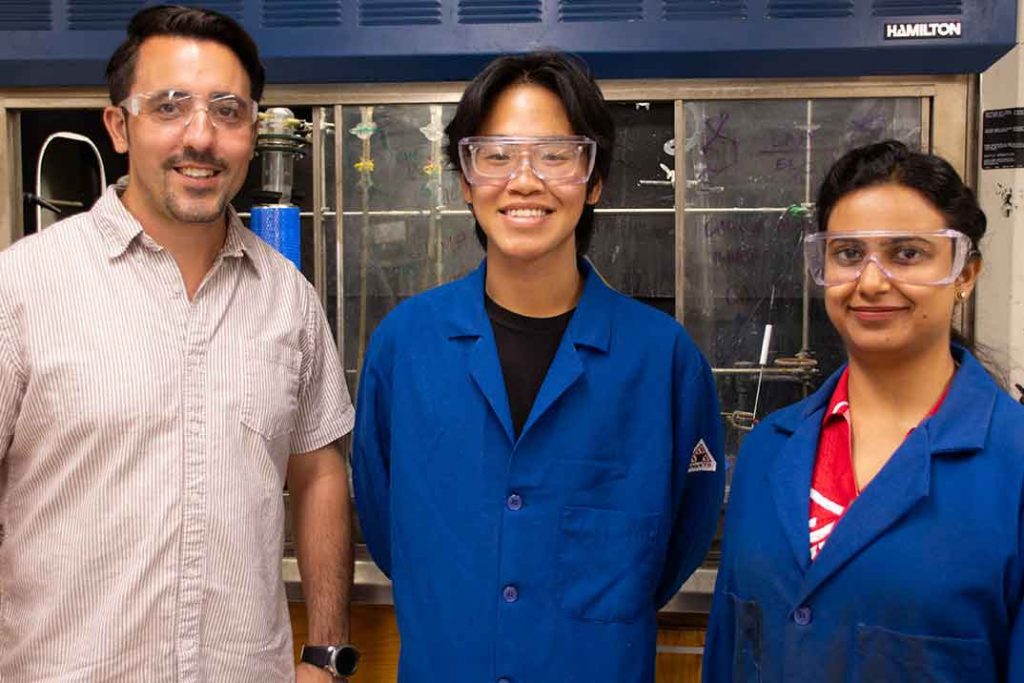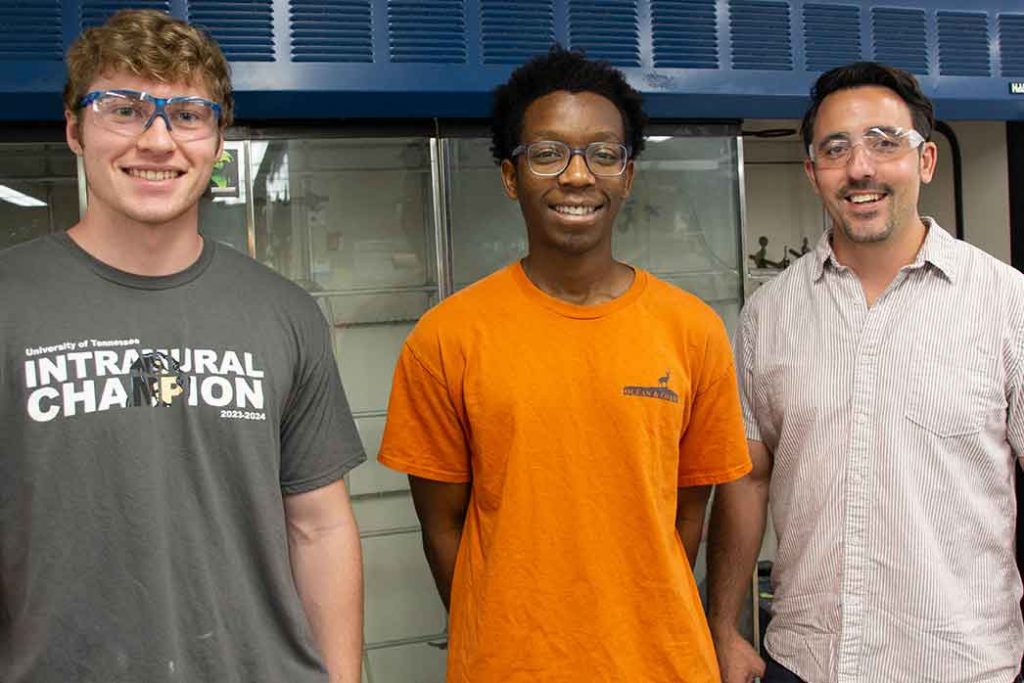Clark Receives NSF Early Career Award
Joseph Clark, assistant professor of chemistry, has received a National Science Foundation CAREER award for his work developing molecules that facilitate pharmaceutical drug design and evaluation.
Clark will receive $650,000 for his research into the use of tritium, the radioactive isotope of hydrogen, for the selective labeling of small molecules and drug candidates. Selective tritiation of drugs plays a critical role in determining how animals (including humans) metabolize them. Typically, scientists incorporate carbon-14 into the molecular structure of new drugs for FDA-mandated metabolic and safety testing; this isotope of carbon allows researchers to track the pathway and the behavior of drug molecules in the body without harming human subjects.
However, the worldwide supply of C-14 is produced primarily at one facility in Russia, and Russia’s ongoing war with Ukraine has caused a worldwide shortage. The shortage poses a potential threat to all small-molecule drugs awaiting approval from regulatory authorities in the U.S. and Europe. Clark and his team will research the use of tritium as a mainstream alternative radiolabeling strategy, thereby reducing the reliance on C-14 for most clinical metabolism studies in humans.
“Tritium is more difficult to use because it sits on the periphery of a molecule, which makes it less stable, or more prone to metabolic oxidation,” Clark said. “My team will research how to add specific amounts of tritium at sites less prone to oxidation and how to measure the purity and structure of these molecules. The United States produces tritium for research and government use, and there are several international suppliers in North America and Europe; if we can make it the new gold standard for drug tracing, we can solve the C-14 crisis and develop new medications more quickly and less expensively.”
NSF created CAREER to recognize and support early-career faculty who can serve as role models in their institutions while advancing research that benefits their state and the nation. In addition to Clark, researchers Doowon Kim, assistant professor of computer science, and Joon Sue Lee, assistant professor of physics and astronomy, also received NSF CAREER awards for their work in designing phishing detectors and developing new materials for quantum technology, respectively.
“We are incredibly proud of this year’s recipients,” said Deb Crawford, vice chancellor for research, innovation, and economic development. “Their efforts will lead to groundbreaking discoveries and inspire students at all levels to experience the excitement and fulfillment of scientific exploration. Their work has significant state and national impact.”
Clark began his career at Marquette University, and joined the chemistry faculty at the University of Tennessee, Knoxville in 2024. His research focuses on the development of selective transition metal-catalyzed reactions. Read more about Clark’s research here.



